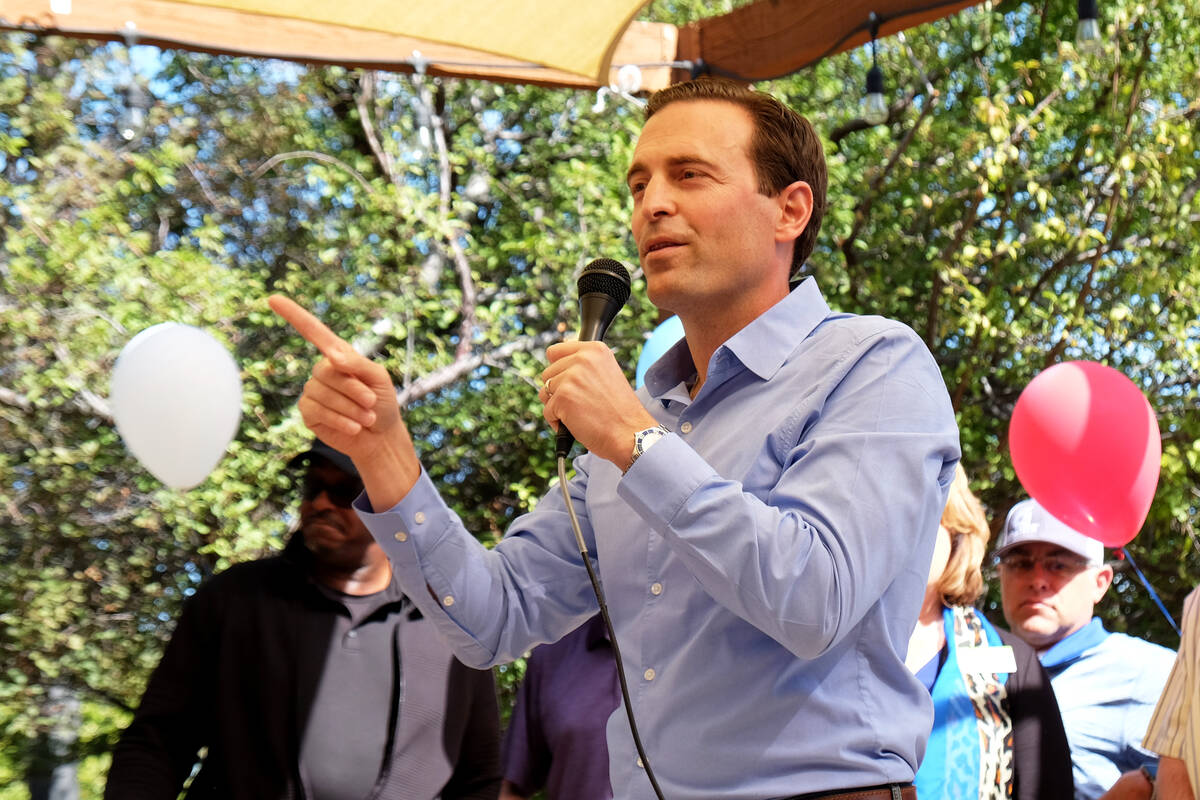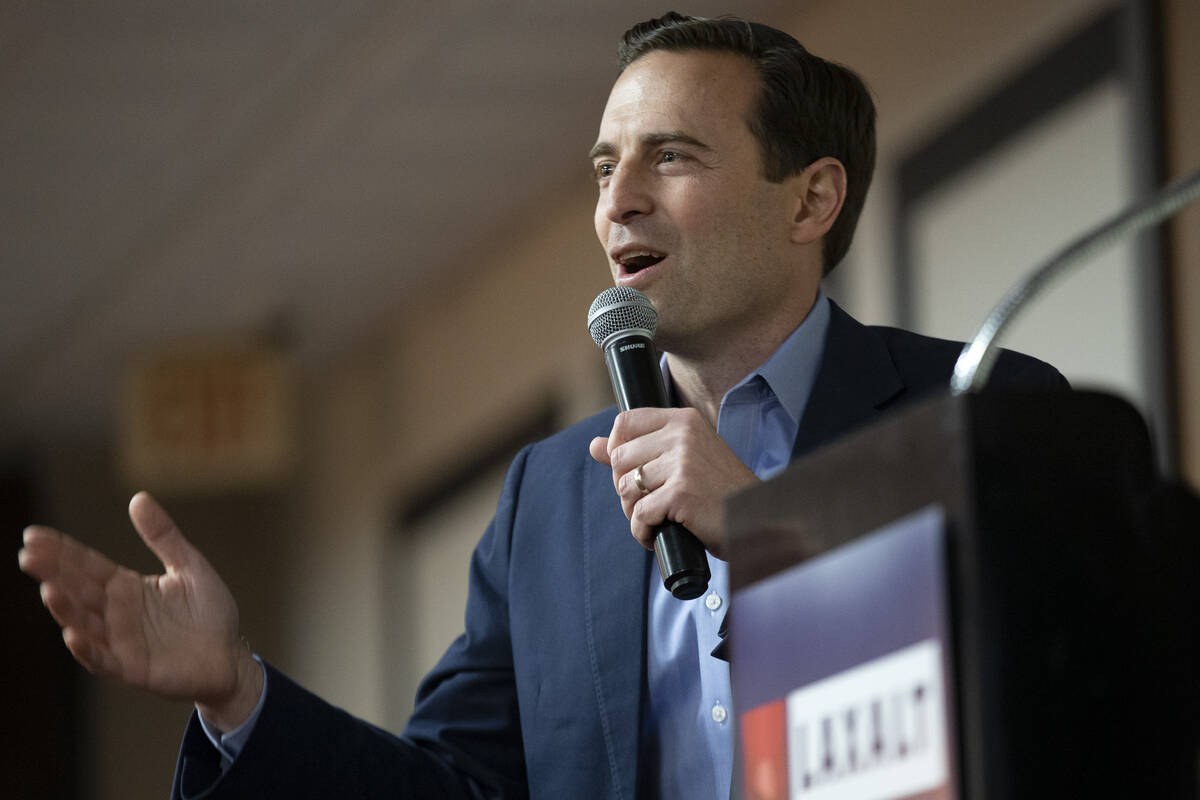STEVE SEBELIUS: Elite Laxalt denounces … the elites?
You know who really hates elites? Adam Laxalt, that’s who!
The former Nevada attorney general and current candidate for U.S. Senate has denounced “elites” since he kicked off his campaign with a thematically dubious “Star Wars” video back in August.
He said the “radical left, rich elites, woke corporations, academia, Hollywood and the media” were “taking over America.” He told a CPAC audience that “your elites who do not believe in our nation” helped persuade Vladimir Putin to invade Ukraine. He told his annual Basque Fry audience that “the elites, they take care of each other, you know?” adding, “They’re all in one club. We’re all in another club.” He’s warned about the “elites in Washington” and the “coastal elites,” too.
In denouncing elites, Laxalt is obviously denouncing himself, a point that has been made repeatedly elsewhere. But it bears scrutiny again:
Laxalt is the grandson of a former Nevada governor and U.S. senator, Paul Laxalt, who was one of Ronald Reagan’s best friends. He’s the son of another U.S. senator, the late Pete Domenici of New Mexico.
Laxalt was born in Reno, but raised in Washington, D.C., where his single mother worked as a lobbyist. He attended St. Stephen’s and St. Agnes prep school, the alma mater of Tipper Gore, “Law & Order” actor Christopher Meloni and, for a time, the late U.S. Sen. John McCain.
He attended Tulane University in New Orleans before a drinking problem forced him into rehab. He later graduated from Georgetown University with a bachelor of arts degree and the Georgetown Law Center with a law degree. He rose to the rank of lieutenant in the U.S. Navy, and served in Iraq.
Whatever the definition of elite, Laxalt’s it. But don’t just take my word for it: In 2014, when he was running for attorney general, Laxalt family member Monique Laxalt objected to his candidacy with a prescient video.
“We believe that he (Adam Laxalt) came from Washington, D.C., where he grew up, to Nevada for the sole purpose of using the family name to pursue a political career, which would allow him to eventually return to Washington as one of Washington’s most elite,” Monique Laxalt said.
Sam Brown, the U.S. Army veteran fighting with Laxalt for the GOP nomination for Senate, called Laxalt “an elitist” and said Laxalt’s campaign was for “D.C. elitists.” He’s backed by some of the top names in the GOP, including Florida Gov. Ron DeSantis and wealthy real estate developer and ex-President Donald Trump.
But all that aside, the real question here should be this: What’s so wrong with being an elitist?
Not so long ago, people wanted to be in the elite: to be educated, well-read, well-traveled, urbane, cultured, smart and sophisticated. People worked hard to join the elite.
It’s only more recently that being elite is considered a bad thing, something politicians are desperate to avoid. (Remember elite former Gov. Mitt Romney trying to relate to regular folk by discussing his favorite sandwich at Carl’s Jr.?)
Now, people try to hide their knowledge, lest others think they’re being looked down upon. “Elite” has become a slur, not a goal. It’s no longer in vogue to want the smartest person in the country to be president; now, all the fanfare is for the common man.
In his classic book, “In Defense of Elitism,” William A. Henry III takes on the notion that we’re all pretty much alike, no one is better than another, that the Everyman is almost always right and that elitism produces disparate results in society that are bad. The book came out in 1994, but would be ripe for cancellation today.
All that was in the days before certain elitists decided saving regular folk from their own decisions and choices was a worthy exercise of legislative power. Seat belt laws, helmets-on-bikes mandates, safety warnings on everything from McDonald’s coffee to plastic bags, are just a few of the predictable results.
Clearly, Laxalt is touting a talking point in his quest to win a race. He’s not alone; plenty of Republicans are given to denouncing the elite. For them, attacking elites is a sure way to remain one.
But for everyone else, the trick shouldn’t work. Don’t feel bad about wanting to better yourselves, to know more, to earn more and to expand your horizons. It’s human nature to want to become more than we are, or at least it was before the nobility of the banal became a political trope.
Contact Steve Sebelius at SSebelius@reviewjournal.com. Follow @SteveSebelius on Twitter.
























